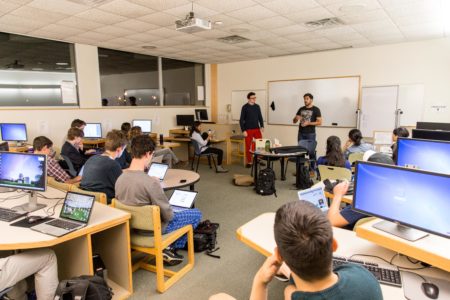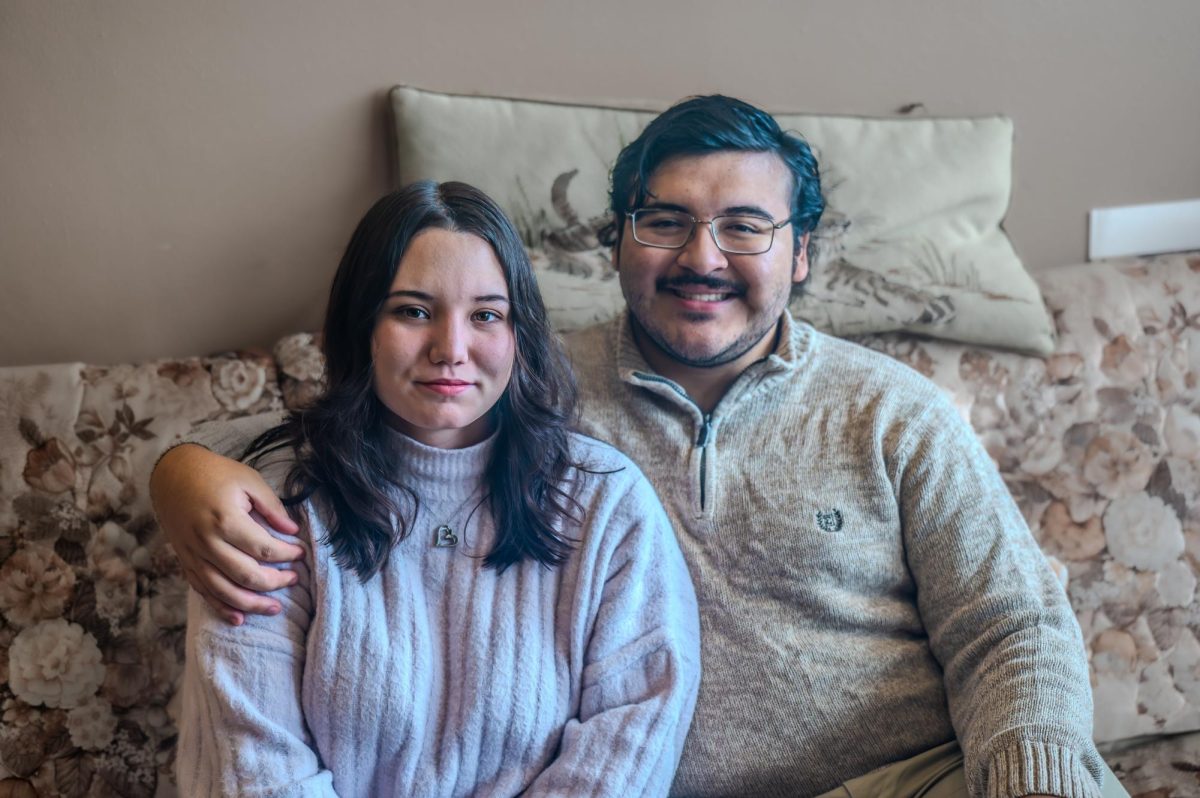
Grinnell students may pursue finance in lower numbers than those at similar schools, but it is not for lack of opportunities. For example at Amherst College, an institution listed among Grinnell’s peers, as many of 30 percent of 2014 graduates pursued careers in finance compared to 2.3 percent of Grinnell students that year. But when Grinnell students handle the endowment, they work with greater amounts than their Amherst counterparts. Through Pioneer Capital Investment, Grinnell students have the opportunity to invest 160,000 dollars — more than three times Amherst’s 60,000 dollar student endowment fund.
Pioneer Capital Investments (PCI) is a student organization that provides students an opportunity to learn about investing, which is something hard to find anywhere else on campus. In 2000, the group, then called the Student Endowment Investment Group, approached the College’s endowment and received 100,000 dollars. They began investing that year, and the fund has continued to grow ever since.
“They had this idea for a student club where they’re able to actively manage money,” Dylan Ambrosoli ’18, one of the portfolio managers, said. “The fact that we have 160,000 dollars in this portfolio means we can actually invest and implement these ideas and learn by doing,” Muhammad Sami ’17, another portfolio manager, said.
More than giving students experience with finance, PCI can guide students to their passions. Sami did not know what he wanted to major in when he first attended Grinnell. After taking and loving economics courses, he decided to delve into the world of finance, and he was able to find PCI.
Grinnell, as a liberal arts school, offers relatively few finance courses, and even then there is no finance or business major. This means that PCI is one of the few places these students can gather among others who are also interested in learning about finances and investing. PCI serves as a place to both practice essential skills and learn critical knowledge from these like-minded individuals.
“The biggest resource is just having other people to talk to who actually know the right things to do in a situation. … The school doesn’t always provide a ton of resources to guide students into these specific roles and it ends up being that fellow students are the best resources,” Ambrosoli said.
To many Grinnellians, according to Sami and Ambrosoli, there is a stigma surrounding the concept of finance. There are many distinct types of jobs within the discipline, some that have nothing to do with investment banking, which the two claim is what many people first think of when they think of finance.
“Grinnellians have this very cynical idea about what finance is,” Sami said. “You’re learning a skill that provides value to society — you have finance departments everywhere. Grinnell has one; any firm or corporation has one.”
Not only do finance departments exist in all sectors of society, but there are also many different positions, including ones that require skills learned at an institution like Grinnell.
“The reason I’m interested in finance is more my liberal arts background than making a lot of money. As a liberal arts student, I have the opportunity to apply everything I’ve learned, especially when it comes to investing. I need to know how to think critically or understand politics,” Ambrosoli said.
For students who want to apply some of the skills they learn through Grinnell’s liberal arts values to the world of finance, PCI invites students to come and participate, to see whether investing peaks their interest.
“There are a lot of people who have this flashing image of Leonardo DiCaprio holding a 100 dollar bill at a wooden desk, and then aren’t actually interested in the concepts,” Ambrosoli said. “It’s the synthesis of different skills and an understanding of what’s going on in the world today.”
The student group’s website can be accessed at web.grinnell.edu/groups/invest


























































